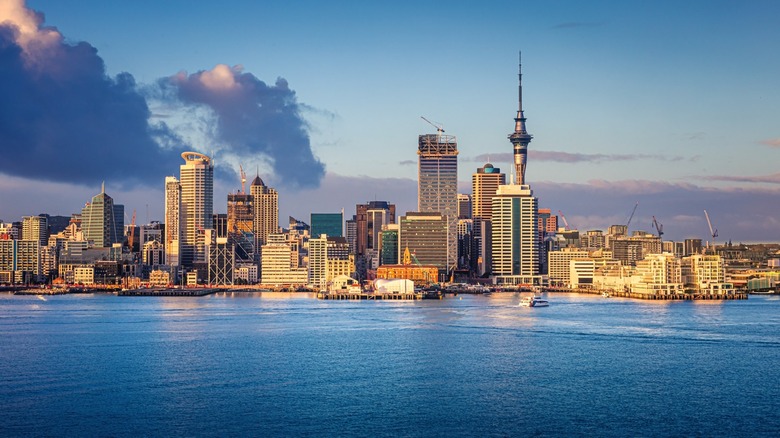New Zealand's First Coronavirus Cases In Months May Have Come From Food Packaging
- The coronavirus may have spread to New Zealand through frozen food packaging, health officials think.
- The country registered its first four cases in over 100 days, placing the entire city of Auckland back on lockdown.
- The novel coronavirus can survive on surfaces and can withstand refrigerated environments. Health officials are testing surfaces at a store where one of the newly infected patients works.
New Zealand should serve as a model on how to deal with a pandemic and handle a deadly new pathogen. The country has reported zero novel coronavirus cases in more than 100 days, but Prime Minister Jacinda Ardern placed the entire city of Auckland in lockdown after just four new COVID-19 cases were discovered.
The government swift's response to the new cluster of COVID-19 cases isn't the only thing happening in New Zealand worth paying attention to. Also important is an early conclusion from local epidemiologists who think their new COVID-19 cases were imported into the country by freight.
With a population of around 1.7 million people, Auckland is New Zealand's biggest city. And it's back in lockdown, days after four members of a family were confirmed to be infected with the novel coronavirus. New Zealand has recorded fewer than 1,600 cases, and only 22 COVID-19 deaths, as of Wednesday morning.
The country has had no community transmission of COVID-19 in more than three months, and the source of the virus is baffling health officials, Reuters reports. "We are working hard to put together pieces of the puzzle on how this family got infected," Director General of Health Ashley Bloomfield said.
The working hypothesis is that the virus was imported by freight. Surface testing is underway at a cool store where a man from the family worked. The cool store belongs to Americold Realty Trust, a refrigerated storage specialist based in Atlanta, Georgia. It's unclear how the virus got there, or if that's how the family got infected.
"We know the virus can survive within refrigerated environments for quite some time," Bloomfield said.
When China reported its new COVID-19 cluster in Beijing a few weeks ago, officials connected the virus to salmon, prompting a panic that impacted the fish industry immediately. It turned out the fish did not contain the virus. But the new findings in New Zealand seem to indicate that the packaging may have been to blame.
Researchers already showed that the coronavirus can survive for days on certain materials. The World Health Organization (WHO) says there's no confirmed case of COVID-19 transmitted through food or food packaging, but fomite transmission is theoretically possible. That's why hand hygiene is so important. Washing your hands often and disinfecting frequently used surfaces can reduce the risk of spread greatly.
What's impressive is the swiftness with which authorities acted. Auckland residents were given just four hours to return to level 3 restrictions on Wednesday. That's a return to a state of lockdown similar to the early days of the pandemic. People are required to stay home, and they can only leave home for essential trips. Police set up roadblocks to prevent people from leaving the city, and supermarkets started rationing the sale of some goods.
Queues formed at COVID-19 testing facilities as a result. Bloomfield explained that four people who had contact with the family were considered likely cases. Contact tracers identified 200 more people as contacts of the family. Health officials are now ready to test tens of thousands of people. The rest of the country will be placed into level 2 restrictions that are looser than the level 3 lockdowns. These will stay in place until Friday.
"Going hard, going early with lockdown is still the best response," Ardern said. "Our response to the virus so far has worked ... we know how to beat this."
The prime minister will now have to decide on how to handle the upcoming elections. Her cabinet will decide on the next step for restrictions on Friday. Ardern delayed a key stage before the September 19th election, the dissolution of parliament, which should kick off campaigning. A decision will be made on Monday.
